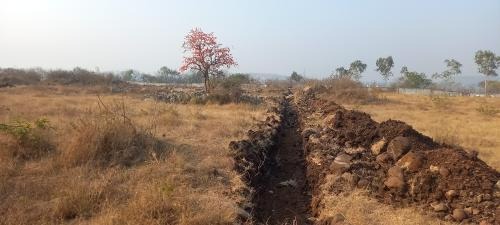Pune: Mahatma Tekdi Faces Threats Despite Proposed Biodiversity Park Status

Kothrud, 6th February 2024: Mahatma Tekdi in Kothrud, designated as a proposed biodiversity park (BDP), is undergoing extensive trenching and digging, causing concern among regular visitors. Over the past two days, earth movers have been actively involved in leveling large tracts of grasslands, impacting the habitat of rare fan-throated lizards found on the hill.
After receiving complaints from residents, a senior official from Pune Municipal Corporation’s (PMC) Warje-Karvenagar ward office confirmed the leveling activities and has requested the civic building permission department to take action against any illegal construction on the hill.
Pushkar Dharap, a member of Mahatma Tekdi Citizens Group, highlighted the rich biodiversity of the tekdi, hosting over 400 bird species, including 114 rare ones. Despite being designated as a proposed BDP 3 and hilltop hillslope zone, the area faces continuous threats from human interference, including dumping of debris. Dharap mentioned a petition initiated by citizens to address these issues, garnering over 500 signatures within 12 hours. They plan to meet with PMC officials to address the concerns and prevent further damage.
Residents are advocating for the area to be fenced, with gates to restrict vehicle entry. They stress the impact of digging on underground organisms, affecting the food chain for various species. Additionally, they support the state’s notification against agricultural activities in BDP zones.
A wildlife biologist raised alarms over the imminent threat of complete destruction faced by Mahatma Tekdi. The hill’s grassland habitat, crucial for the fan-throated lizard, is rapidly diminishing. Despite being in a proposed BDP zone, encroachments and daily vehicular activities continue, contributing to environmental degradation.
Mahatma Tekdi is a significant biodiversity hotspot in Pune, hosting diverse species, including the fan-throated lizard, Alexandrine Parakeet, RedNeck Falcon, and native trees like palas. Preserving this urban biodiversity is vital for climate change mitigation.





